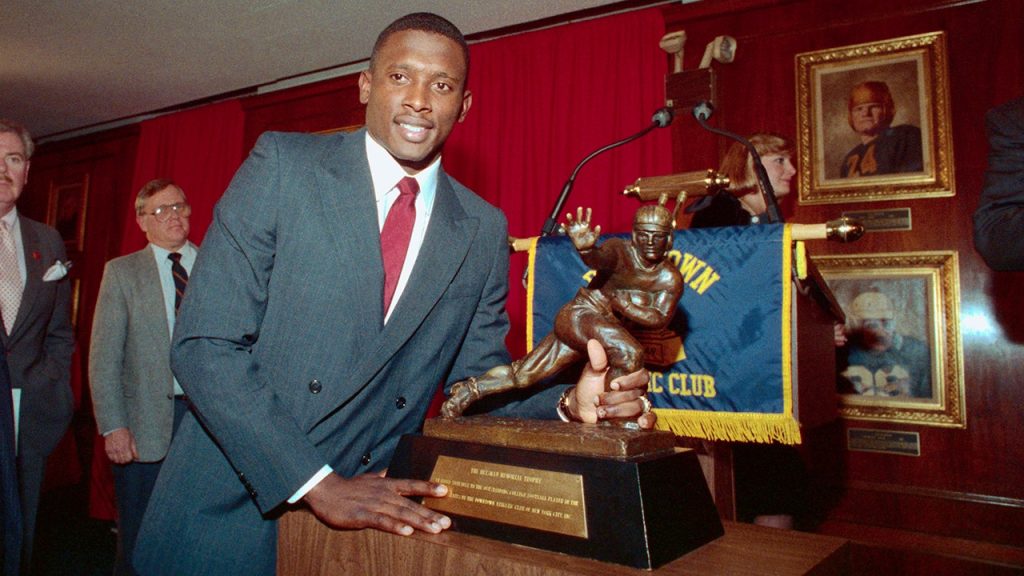Legendary Notre Dame football player Tim Brown expressed his concerns about the current state of college football, describing it as the “wild, Wild West.” He highlighted the impact of Name, Image, and Likeness (NIL) deals, the transfer portal, and conference realignment as factors that have significantly changed the landscape of the sport. Brown believes that college football seems to be breaking away from the NCAA and operating on its own terms, with less loyalty among players and coaches. He expressed his belief that the current system is messy and lacks stability.
Reflecting on his own successful career at Notre Dame, where he won the Heisman Trophy in 1987 under coach Lou Holtz, Brown emphasized the importance of loyalty and recruiting in college football. He recounted his impressive stats during his time with the Fighting Irish, where he amassed 137 catches for 2,493 yards and 12 touchdowns. After his collegiate career, Brown went on to have a Hall of Fame career with the Raiders in the NFL. Despite his success, he remains critical of the current state of college football and the impact of recent changes in player compensation and transfer rules.
Brown’s remarks come at a time when college football is experiencing significant shifts and challenges, with schools and conferences grappling with the implications of NIL deals and the transfer portal. He expressed concerns about the lack of loyalty in the current system, where players can easily transfer between schools and coaches have to constantly recruit to retain talent. Brown suggested that the focus on financial incentives and player mobility has created a chaotic environment in college football, overshadowing the traditional values of loyalty and team commitment.
As college football continues to evolve, Brown’s perspective offers a unique insight into the challenges and uncertainties facing the sport. He compared the current landscape to the “wild, Wild West,” suggesting that the traditional structure and regulations enforced by the NCAA may no longer hold sway over the direction of the game. Despite his personal success in both college and professional football, Brown remains critical of the changes in the sport, emphasizing the importance of stability and loyalty in building successful teams and programs.
Brown’s comments highlight a broader debate within the college football community about the impact of recent changes on the integrity and competitiveness of the sport. As schools and conferences navigate the complexities of NIL deals, transfer rules, and conference realignment, former players like Brown provide valuable insight into the evolving dynamics of college football. His concerns about loyalty and stability resonate with many fans and supporters who value the traditional values of the game, even as it faces new challenges and opportunities in the modern era.
Ultimately, Brown’s perspective offers a reminder of the enduring legacy and traditions of college football, even as the sport grapples with new realities and pressures. His success at Notre Dame and in the NFL exemplifies the potential for athletes to excel both on and off the field, while also serving as a cautionary tale about the potential pitfalls of the current system. As college football continues to adapt to changing circumstances, figures like Tim Brown provide valuable insights into the ongoing conversation about the future of the sport and the principles that have guided it for generations.


